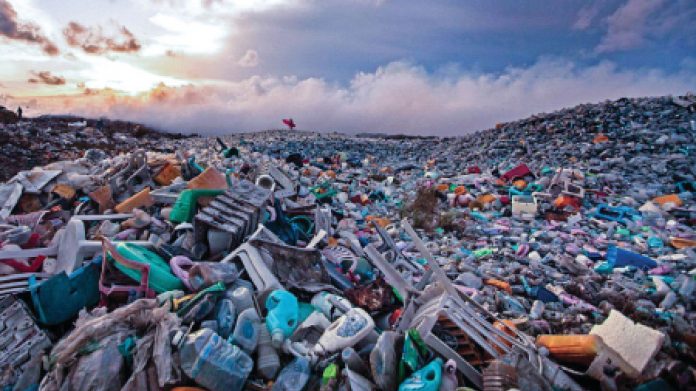By Elesha George
A decrease in revenue from plastic waste exports – coupled with the increasing cost of doing business – has made it almost mandatory for Antigua and Barbuda to find innovative ways to recycle items normally thrown away.
“Maybe 10 years ago, we were getting 15 cents a pound for plastic grind, we are only getting about three or four cents a pound right now,” shared Mario Bento, Chairman of Antigua and Barbuda Waste Recycling Corp (ABRWC).
“Increasing freight and handling charges, oil prices are going up and this is becoming a bigger and bigger problem every day, so it’s making less and less sense to be exporting recyclable materials from the island.”
He said that it is also difficult to find export markets for the country’s plastic waste, the bulk of which otherwise ends up at the landfill site. In 2017, for example, China banned the import of most plastic garbage, forcing the decline in the global plastic waste trade.
“The model previously was that we collected material, we compacted them, grind them up and then we ship everything to China. This was no longer an option so we really need to find innovative ways to keep recycling,” Bento explained.
According to an audit conducted by Asia Pacific Waste Consultants (APWC) in 2020, which Bento shared at the Antigua and Barbuda Recycling Day Symposium on March 18 – Global Recycling Day, 3,800 tons of plastic is being imported into Antigua annually, of which 3,250 tons actually reaches the landfill.
“Seventeen percent of that is unaccounted for … which means that it has gone into the environment; either it’s into the marine environment or it’s held up in reservoirs or litter around the island,” he said.
The audit, according to Bento, also showed that ABWRC (a brainchild project of Rotary Sundown) was only recycling three percent of that plastic waste.
So, what’s the solution? Well, ABWRC is considering implementing a plastic bottle refund policy – similar to the one undertaken by the Ministry of Health last year – as a way to reduce waste. Customers would receive a small fee for recycling their plastic containers once this goes into effect. The expectation is that it will increase recycling rates in the country.
Another idea is to manufacture items such as furniture from plastic instead of exporting it.
One of the speakers at the recent symposium, Marine Project Officer at the National Union for Conservation of Nature, Joao Sousa, believes that the solution should start by trying to understand the source of waste, to qualify and quantify it, and then to prevent it from entering the oceans.
To do this, he said, we must calculate how much plastic, and in which format and quantity, is generated by each sector; what can be recycled to create new value chains and products; and identify what can be done with the plastics that cannot be recycled.
“All the plastic in the ocean was once in our hands and we just let it slip,” he remarked.
The entire aim is to stimulate the economy through employment using inorganic waste to create circular economy solutions by supporting economically viable projects.
Grant Kendzior, CEO and Founder of Eco Breakthroughs, has just the project that could potentially curb Antigua’s plastic waste problem further.
His project, EcoCenter, which he started in 2019, assists ‘ecopreneurs’ to start a sustainable business from upcycled plastic waste.
EcoCenter acts as a main hub and utilises upcycling machines and other tools as well as online education and coaching and support for ecopreneurs.
“We focus on people, planet and profit equally,” he said, explaining that the company serves people in the early development stage, before they launch a startup.
He hopes to develop this initiative in Antigua after noting that the country was named among the top global polluters per capita during a United Nations meeting in 2019. It was one of 10 Caribbean countries that were listed, he said.
Access to ideas and networking like his were made possible because of IUCM’s Plastic Waste Free Islands project, which was funded by the Norwegian government to promote circular economy solutions to plastic waste and to create income in the Caribbean.
Businesses like Antigua and Barbuda Waste Recycling Corp, Zero Waste Antigua and Barbuda NGO, Will’s Recycling, and the National Solid Waste Management Authority made special presentations during last Friday’s conference.
Environment Minister Sir Molwyn Joseph also submitted a video presentation where he noted that the government is looking beyond plastic in its bid to rid the country of waste materials.

